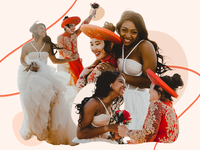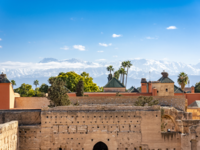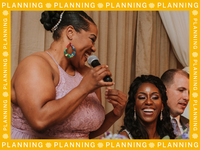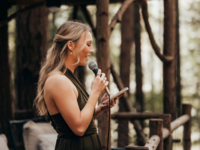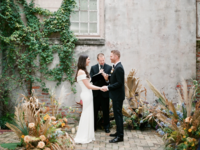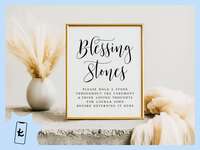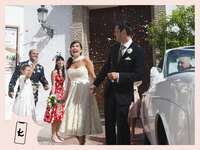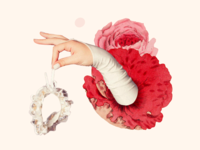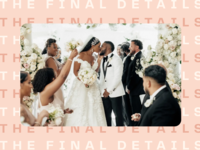12 Moroccan Wedding Traditions and Customs You Need to Know
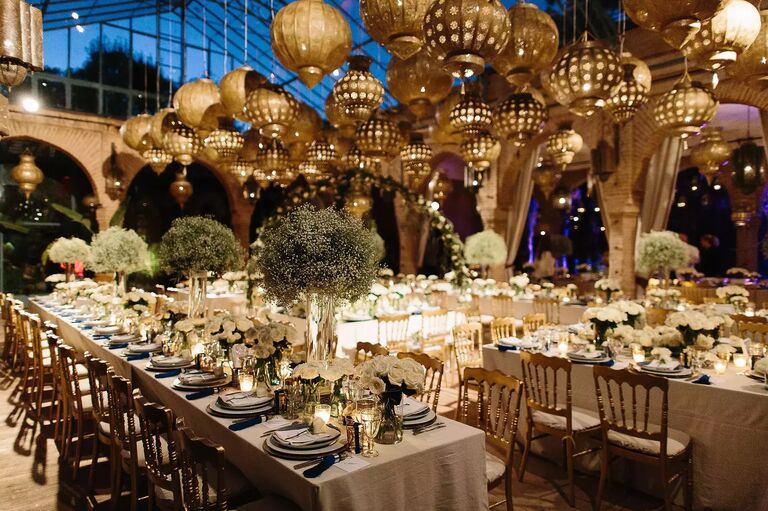

Hosting a traditional Moroccan wedding can be a fun and fulfilling moment in a couple's life. Not only do you get to share your love with your family and friends, but you get to do so by honoring some of the most important cultural traditions Moroccans have.
These wedding celebrations include time honored traditions that are meant to send the new couple into the world together with a fresh and prosperous start. Everything from the way they prepare for the ceremony with a hammam, to the words guests use to salute the new couple after they've officially tied their lives together, stems from a spiritual process more than one thousand years in the making.
Whether you're trying to honor these traditions by throwing an event for yourself, or wanting to learn more about a ceremony you're about to attend, you can find everything you need to know about traditional Moroccan weddings by reading what our experts have to say.
A Brief History of Moroccan Wedding Traditions
When looking at the history of Moroccan wedding traditions, Gaby Chetrit, founder and owner of La Marguerite says that you need to remember that there's no such thing as an intimate wedding ceremony. "The culture has a great emphasis on hosting and welcoming," he explained, adding that you can expect to see lengthy guest lists that feature all of the important people in the couple's lives.
The reason why these events tend to be so elaborate (and well attended) has to do with the symbolism of the wedding night and the fact that they're celebrating a spiritual milestone for the pair that includes, among other things, an end to their celibacy.
How Long Does a Traditional Moroccan Wedding Last?
Because these celebrations mark such an important next step, Michelle Durpetti, Michelle Durpetti Events says they can go for several days or even a week. "The institution of marriage is highly celebrated and respected in this culture so it is not unusual to celebrate longer than what we would consider a wedding celebration," she continues.
Traditional Moroccan Wedding Garments
Thanks to spiritual and cultural traditions, there are several symbolic outfits that are donned. Everyone from the couple to the guests have their role to play (and their outfit to wear).
Moroccan Wedding Clothes for the Couple
There are traditionally several different outfit changes for the bride, who Durpetti says can wear up to seven different outfits. Grooms get off a little easier with just one or two ensemble changes. "The outfits all have cultural and geographical significance, celebrating the diversity and richness of Moroccan folklore and culture," she explains.
On the day of the wedding, JoAnn Gregoli, owner of Elegant Occasions by JoAnn Gregoli says the bride will wear two to three outfits. "During the ceremony the bride will wear a traditional white takchita, symbolizing purity," she continues. "She then changes into a sahraouia, which is a dress wrapped around the body as a tribute to the Moroccan Sahara region. Typically, [they] end the evening with a mejdoub, a gold and embroidered caftan."
Moroccan Wedding Blanket Tradition
In addition to wearing traditional garb for the wedding celebration, the couple will also be draped in a special cloth. "The Moroccan wedding blanket, typically made of Berber, is placed over the couple during their ceremony," shares Moshe Chetrit, owner of La Marguerite, who adds that this blanket is usually passed down from generation to generation and is traditionally neutral in color.
What Do You Wear to a Moroccan Wedding?
As a guest attending a traditional Moroccan wedding, Durpetti says that you should definitely feel free to dress up. "The bride is the queen of a Moroccan wedding with multiple symbolic dress changes all of which are stunning," she continues, adding that most women also wear takshitas to the celebration. As for the men, she says you can opt for a suit.
Moroccan Prewedding Traditions
The happy couple and their family will spend the days leading up to the wedding by partaking in ceremonies like a hammam and Henna Parties.
What Happens at a Prewedding Hammam?
This relaxing treatment often comes the day before the Henna Party, according to Gregoli, and it includes a purification spa ritual that features massages, scrubbing, perfume prep and waxing.
What Happens at a Moroccan Henna Party?
A Henna Party is held during the week before the wedding and is attended by the couple and their chosen guests. Typically a groom will wear a djellabah (or long dress), according to Chetrit, while the bride opts for an intricate and heavy gown called a labssa fascia, normally opting for green. "They are lifted on their respective amarias (this is an opulent tented platform that is carried by four to six men typically) and brought to sit on a decorated sofa where guests can greet them and gather around them," he continues, adding that there is often music and dancing as well.


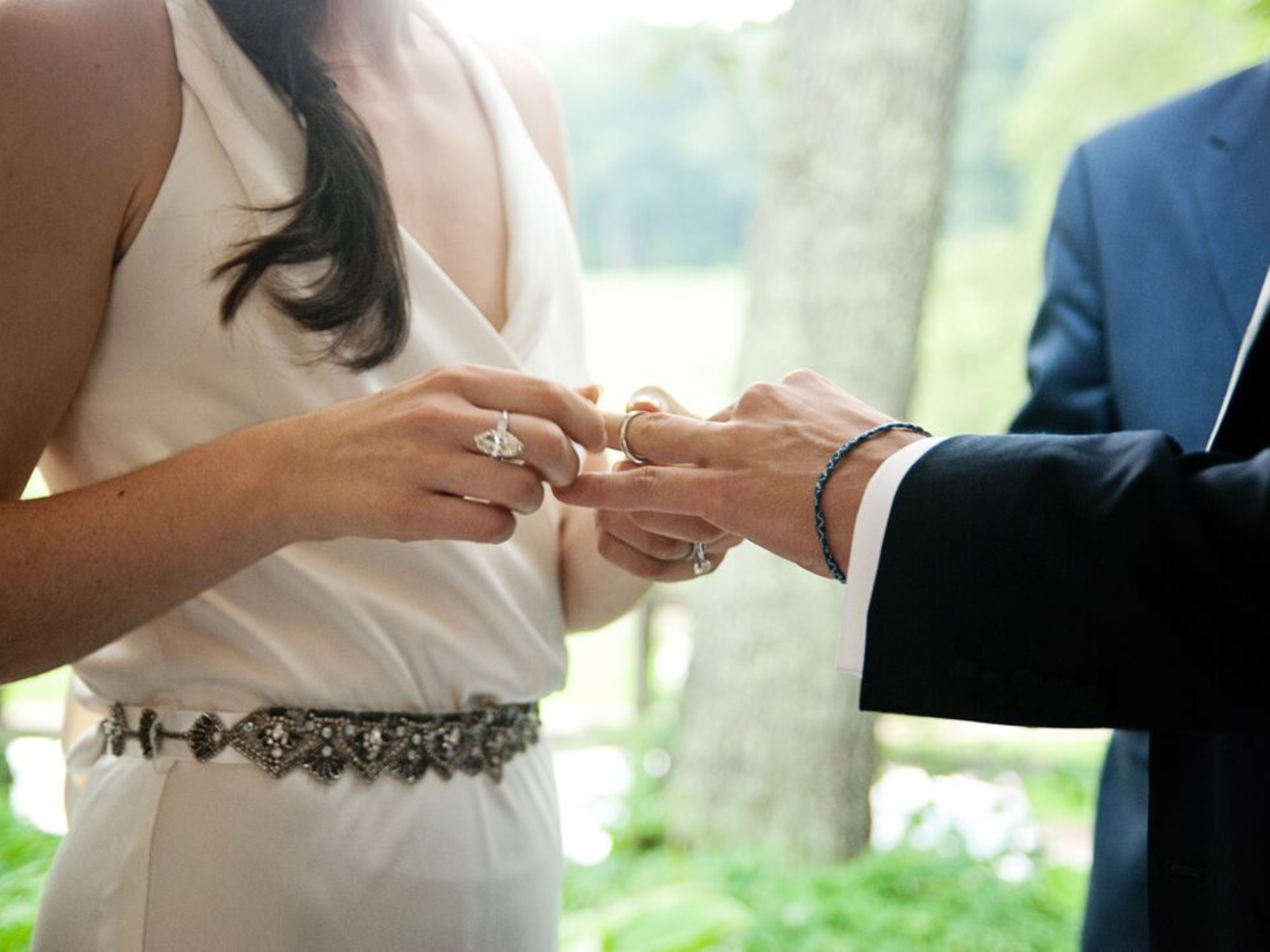
"The henna is presented in a beautiful bowl. It is scooped onto the hands of the bride and groom as a symbol of fertility, beauty, and optimism," he continues. "Most importantly, it is meant to bring good luck to the new couple. All the guests are also offered the chance to have henna placed in the palm of their hands to dye it to bring them good fortune, too."
Moroccan Wedding Ceremony Traditions
With a multiple day celebration it's no wonder couples manage to squeeze several major events into the wedding ceremony traditions. Some of these events are more intimate affairs while others involve all the guests and attendees.
The Drib Sdak Comes First
Before the couple celebrate their union, they sign their marriage contract in front of their family and an Adoul, who serves as a justice of the peace. Gregoli says this signing marks the start of their union, and is legally and officially binding. After they're done they will eat dinner with their closest friends and family and nosh on items like mint tea and pastries.
Religious Traditions
Depending on whether it's a Jewish or Muslim wedding, the blessings and traditions included may differ. Rabbis may opt to read a Moroccan Sephardic text in Jewish ceremonies, while Muslim weddings may be dry events.
The Offering of Milk and Dates
One of Durpetti's favorite traditions is the one where guests are welcomed with milk and dates. She said she incorporated this into a station during a wedding she helped plan, which made Moroccan guests feel welcomed.
Moroccan Wedding Reception Traditions
The reception often features a lot of fun and celebration, which is evident with the food and music enjoyed by revelers.
Musical Traditions
In typical Moroccan wedding receptions, guests can expect to hear (and dance to) Andalusian music, according to Chetrit. There will also normally be a mix of bands that play throughout the reception. "The main band will be playing chaabi music (Moroccan pop), but also more traditional music like Andalusi is usually played during dinner by local bands that are regional to where the couple are from," Gregoli adds. "DJs are often used for the extended dancing and after party."
The Entrance
When the married couple enters the venue, people will recognize their change in marital status by saluting them with a special blessing. "Each time the couple enter the room the entire congregation will shout 'Peace by Upon the Prophet,'" Gregoli explains.
Moroccan Traditional Wedding Food, Drinks and Desserts
Guests will also be treated to some delicious foods, which Gregoli says is an important element of a traditional Moroccan wedding.
The Wedding Dinner
Gregoli says that the wedding feast may consist of items like grilled chicken with saffron sauce and lamb tagine with prune and almonds. In addition to the meat dish, she says you can expect to see seffa, which is a side of short noodles that have been sweetened and served with cinnamon and grilled almonds.
"Some weddings may even serve a whole sheep (mechoui style) at each table. Traditional pastries are also served at a Moroccan wedding."
Moroccan Wedding Cake
There's more than one sweet treat served at a traditional Moroccan wedding. Guests may eat desserts made from milk pastilla, which Gregoli says is a delicious dessert of layered deep-fried sweet dough and cream and flavored with fragrant cinnamon and orange blossom water.
"Another Moroccan favorite is orange cake with cardamom," she continues. "Most of their cakes are very intricately designed with patterns and details that define the region."
Moroccan Postwedding Traditions
The wedding celebration ends when the cake is served, according to Gregoli. "The party will typically go until dawn," she says. "The celebration will conclude with the cutting of the cake and sharing the cake with their guests, [then] they will then depart."
After the celebration the couple will leave the party followed by the guests leading a parade down the streets to the groom's house, where she says the groom's family will be waiting. They'll be greeted again by milk and dates in an effort to wish them "a sweet and peaceful life."
